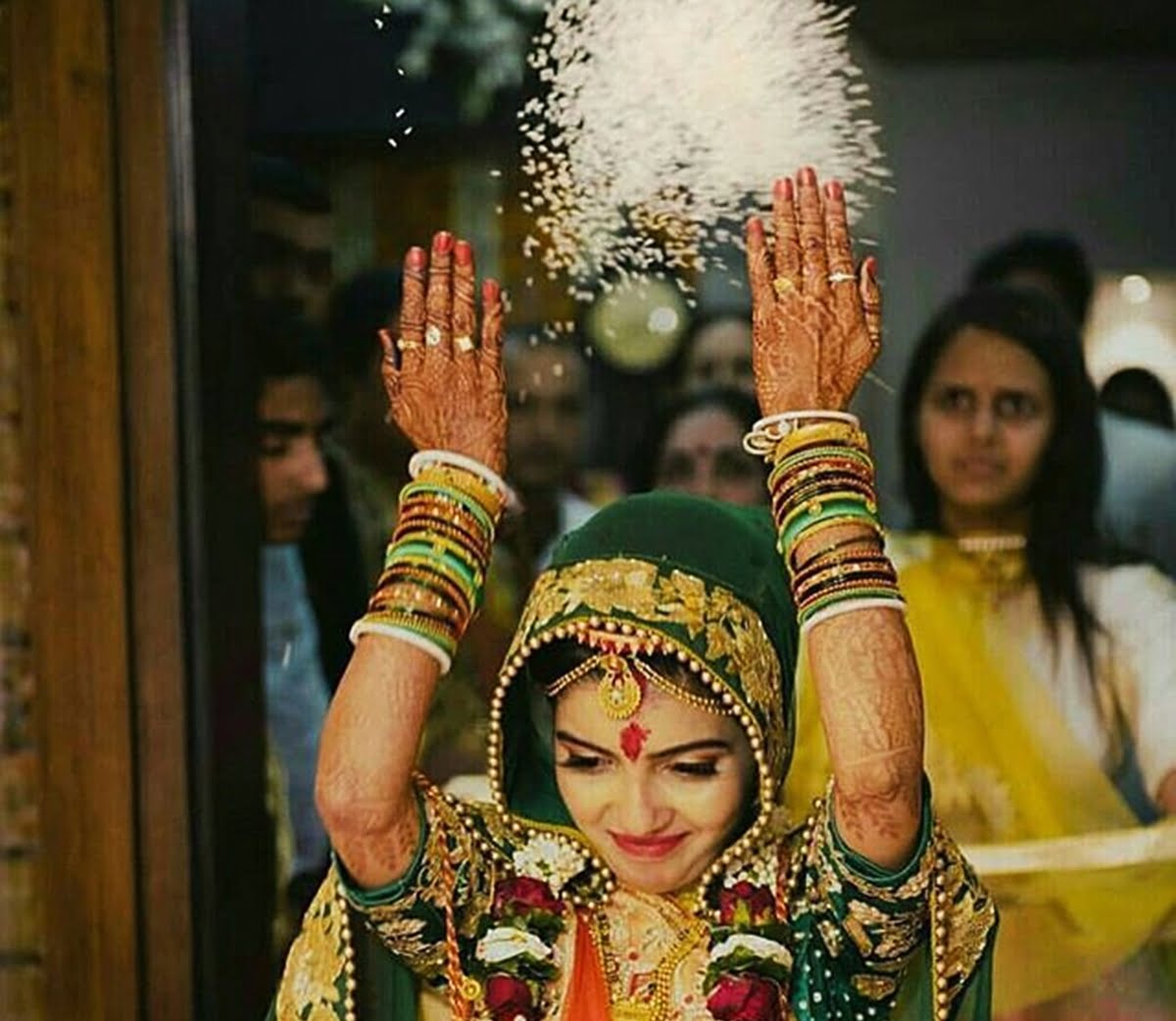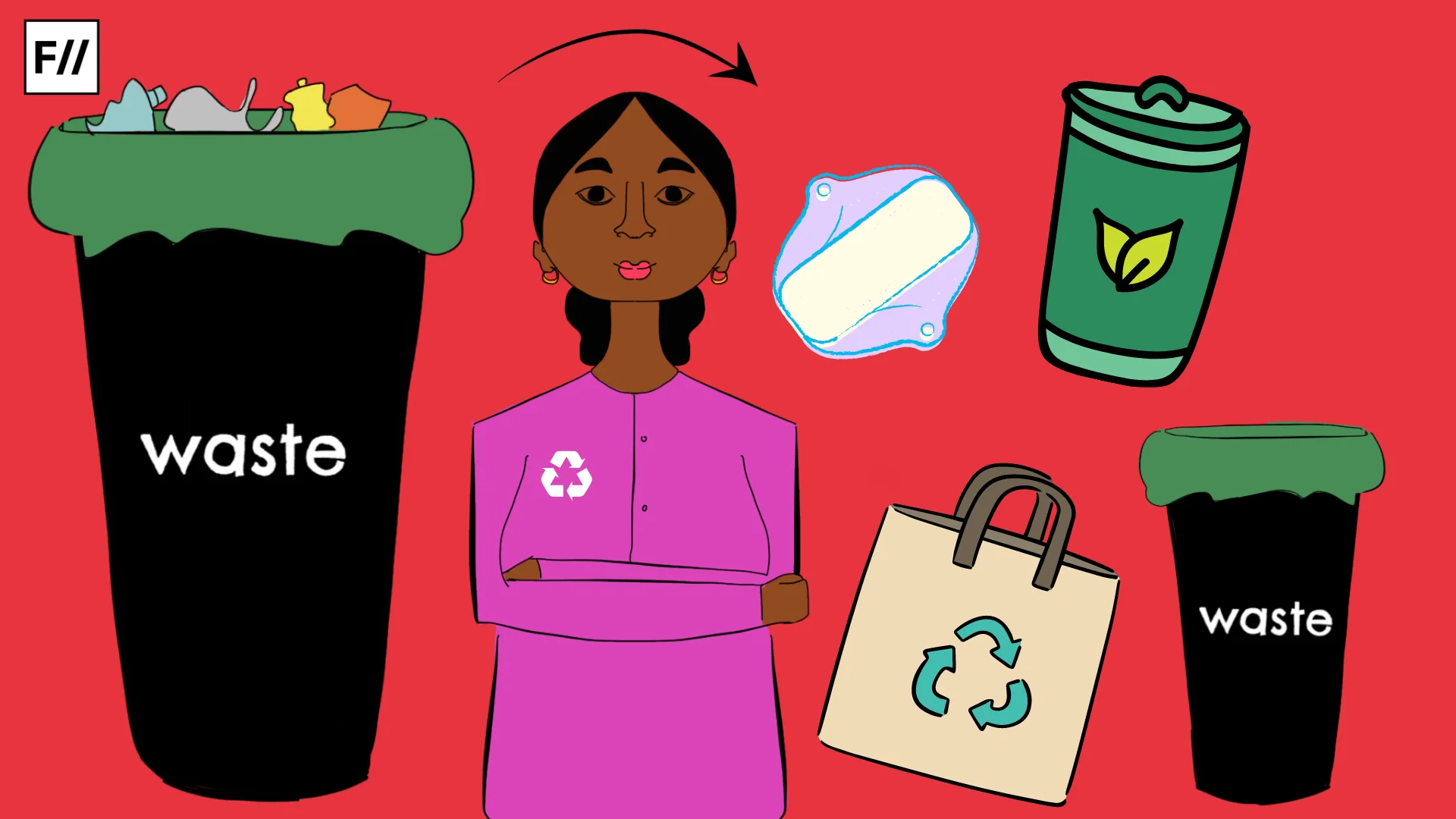Being locked up at our homes gives us a chance to sit back and reminisce all the good times we had when we could step out. I was reflecting on a friend’s wedding a year ago. What an opulent affair! Enormous lawns, perfectly coordinated colour palettes of décor and linen, fine china, swoon-worthy sartorial elegance, extravagant buffet spreads and the whole enchilada! It got me wondering how antiquated wedding celebrations have evolved over time giving way to more modern options.
Most of the basic ceremonies and customs in Hindu Indian weddings still remain the same, portraying the essence of what our Indian society values most. One such custom is the bidaai ritual, which marks the farewell of the bride from her home to her husband’s and in-laws’.
However, most of the basic ceremonies and customs still remain the same, portraying the essence of what our Indian society values most. One such custom is the bidaai ritual, which marks the farewell of the bride from her home to her husband’s and in-laws’. So, my friend did have a bidaai, which, needless to say, was an emotional affair. Even I had a lump in my throat, mostly because she was going to be moving to the USA soon after, to join her partner.
Also read: Wanted: A Bania-Feminist Consciousness For True Emancipation
Witnessing he bidaai ritual, which involved a number of symbolic actions, exuded a daunting aura, like a moment of truth. The word ‘bidaai’ literally means ‘farewell’, so, in a sense, the girl is leaving her parents and maternal family forever, to enter a new household as well as a new role – from a daughter to now also a wife and a daughter-in-law. The girl has to throw a handful of rice behind, which is symbolic of repaying the debt of bringing her up, if that is even possible.
In Muslim weddings, a similar custom called ‘rukhsati’ is performed, where the girl is bade goodbye by her family and friends, as she ventures into new relationships.
Many East Asian cultures have different nuances of bidaai, where the bride is symbolically expected to leave her parents in order to join her husband.
As a simple-minded person, there are two questions that pop up in my mind. One, why is it necessary to jettison old relationships in order to form new ones? Can they not go together? And two, if the girl is leaving her parents, why aren’t the boys in the heterosexual marriage cultures?
The dynamics of society are ever-evolving at a rapid pace, and many cultural wedding practices are redundant. For example, today, parents prefer to give the best possible education to their children – boy or a girl. The child repays by being financially independent and tangibly contributing towards their parents’ well-being, be it time-wise, effort-wise or money-wise. So, the act of throwing rice as a token of prosperity and gratitude towards parents, is, well, hollow!
If we rewind the world to about four thousand years ago, we would see that marriage itself was an arrangement of convenience for men. To satisfy their physical, sexual and offspring-related needs, women were married off to men by their fathers. If not, it was (and continues to be) seen as an arrangement that would ensure ‘protection’ and ‘security’ for women. As religion became dominant, especially in the Jewish, Christian and Islamic world, marriages became a legalised concept. Couples came together for pragmatic reasons rather than romantic love, and most organised religions maintained that the man was the head of the family whose wishes were, inevitably, kept at the forefront.
In India, organised marriages began around three thousand years ago. A shift from the historical Vedic religion towards classical, orthodox Hinduism introduced a patriarchal system where men became the primary custodians of women, from fathers, to husbands, and then to sons.
Over the years, due to various reasons, women entered the work force, and did not need to be financially dependent on men. Ironically, in the lower income groups, women sometimes contribute more towards expenses than men. How then, are men still enjoying the status of custodians of women?
Of course, the problem is not with the ritual of bidaai, per se, but with the social fabric that encourages customs signifying a relegation of women to the preferences of a man. The notion that wherever the man decides to live, either with his parents or independently, the woman must absolutely follow, is evident in this custom. Bidaai not only euphemises, but also glorifies the absence of a woman’s right to choose her abode after marriage.

Recognising this disparity in the social status of men and women, the Indian Constitution has laid down fundamental rights for married women. The Hindu Marriage Act allows a woman to stay at her parental house even after marriage, for any amount of time that she wishes to. She also has equal rights to inherit her parent’s property as her male siblings.
Also read: Bahu-Aagman: Of Woman & Familial Harmony In A Marwadi Rasam
As a self-respecting, independent woman, I see two ways forward from here: One, doing away with the practice of bidaai. And two, having a similar practice for men.
In the face of religious extremists and conservatives building a love jihad narrative, many couples have dared to get married on their own terms, opting for court marriages, prenups, separate bank accounts, status-quo surnames, etc. to protect their individual identities and yet enjoy the spirit of companionship and love without social bondages. It is time that societal expectations keep up with the dynamics of modern marriages and modify traditional customs like bidaai to make them more relevant and meaningful.
With the advent of nuclear set-ups and fluid social and personal commitments, ideally, one should have the freedom to choose their own marriage rituals too. In the face of religious extremists and conservatives building a love jihad narrative, many couples have dared to get married on their own terms, opting for court marriages, prenups, separate bank accounts, status-quo surnames, etc. to protect their individual identities and yet enjoy the spirit of companionship and love without social bondages. It is time that societal expectations keep up with the dynamics of modern marriages and modify traditional customs like bidaai to make them more relevant and meaningful.
Tasneem Babat is an author for children’s stories, related to fantasy fiction as well as daily life experiences of children. Passionate about writing, she has also written and published short stories in various genres as well as runs a blog on Momspresso on her motherhood experiences. Apart from this, she provides content writing services through her venture called E-inkworks. She cane be found on her Amazon profile as well as Instagram.
Featured Image Source: Pinterest




